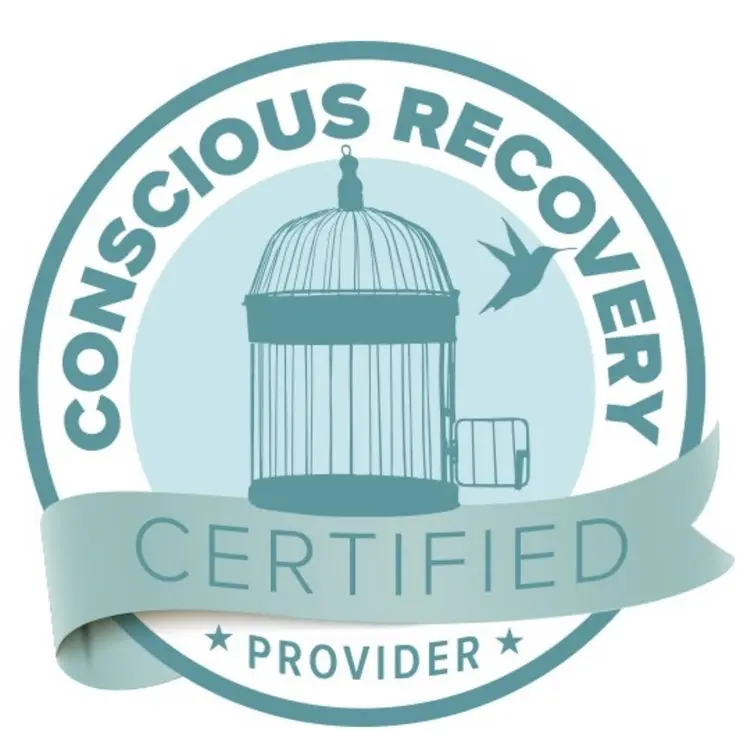Intimate partner violence (IPV) is a severe public health issue that affects more than 12 million individuals each year. Intimate partner violence is defined as any behavior within an intimate relationship that causes physical, psychological, or sexual harm to those in the relationship. At Monima Wellness, we are dedicated to supporting women and female-identifying individuals who are grappling with the effects of intimate partner violence in San Diego and beyond. Our comprehensive outpatient mental health treatment programs are designed to address and honor the complexities of trauma, including IPV while providing the necessary care and support to help survivors reclaim their lives.

IPV often begins subtly and can escalate over time. It may start with minor behaviors but gradually become more severe and controlling. This gradual escalation makes it difficult for victims to recognize the danger they are in, often normalizing the abusive behavior as part of their relationship dynamics. IPV typically involves a pattern of coercive tactics designed to maintain power and control over the victim. These tactics can include:
IPV is not confined to any one type of relationship. It can occur in marriages, dating relationships, cohabiting partnerships, and among separated or divorced couples. Additionally, it affects individuals across all socioeconomic statuses, educational levels, and communities. The universal nature of IPV means it can touch anyone, making awareness and understanding critical for prevention and support.
Intimate Partner Violence is a widespread issue that affects individuals across all demographics. Here are some quick facts and statistics that highlight the prevalence and impact of IPV:



Intimate partner violence, also commonly referred to as domestic violence, is a multifaceted issue that manifests in various harmful behaviors, each with its distinct characteristics and impacts. Recognizing and understanding the different forms of IPV is crucial for both those who may be experiencing IPV and those seeking to help victims of IPV. Education and awareness allow organizations and treatment centers to provide appropriate support and intervention to those affected. This can also help survivors understand unhealthy and dangerous behaviors that may require immediate action.
Ultimately, IPV encompasses a range of abusive behaviors that perpetrators use to exert power and control over their partners. These behaviors can occur in isolation or, more commonly, in combination, contributing to the complexity and severity of the abuse. Here are the primary forms of IPV:
Physical violence involves any act of physical aggression or harm. This can include hitting, slapping, punching, kicking, biting, or using weapons to inflict injury. The consequences of physical violence are often visible, such as bruises, cuts, and broken bones, but they can also lead to long-term health problems, including chronic pain and disabilities. Physical violence not only causes immediate harm but also instills fear and subjugation in the victim.
Sexual violence includes any non-consensual sexual act or behavior. This encompasses rape, sexual assault, forced sexual activities, and reproductive coercion, where the abuser exerts control over the victim’s reproductive health. Sexual violence can have profound and lasting emotional and psychological effects on survivors, leading to issues such as depression, anxiety, and PTSD. It is a profoundly invasive form of abuse that violates the victim’s autonomy and dignity.
Emotional and psychological abuse involves behaviors that harm an individual’s self-worth or emotional well-being. This type of abuse includes verbal abuse, threats, humiliation, isolation, and controlling behaviors. The abuser may use manipulation tactics to undermine the victim’s confidence and sense of reality. The impact of emotional and psychological abuse can be as severe as physical violence, leading to long-term mental health issues such as anxiety, depression, and low self-esteem.
Economic abuse occurs when one partner controls the other’s access to financial resources, limiting their ability to support themselves and forcing them into dependence. This can involve withholding money, preventing the victim from working, sabotaging their employment, or controlling their financial decisions. Economic abuse creates financial instability and can trap victims in abusive relationships, making it extremely difficult for them to leave.
Stalking involves repeated, unwanted attention and contact that causes fear and concern for one’s safety. Stalking behaviors can include following the victim, monitoring their activities, sending threatening messages, or showing up uninvited at their home or workplace. This constant harassment creates a pervasive sense of fear and anxiety, disrupting the victim’s daily life and sense of security.
While IPV can affect anyone, certain risk factors may increase the likelihood of experiencing or perpetrating this form of violence. According to the U.S. Centers for Disease Control and Prevention (CDC), some of the most significant risk factors include:
Specific individual characteristics can increase the likelihood of a person experiencing or perpetrating IPV. These factors do not directly cause IPV but contribute to or indicate the possibility of a higher risk. Some individual risk factors include:
The dynamics within a relationship can also play a significant role in the risk of IPV. Certain relationship characteristics and interactions can increase the likelihood of violence:
The broader community environment also plays a critical role in the risk of IPV. Community-level factors that can contribute to IPV include:
Preventing intimate partner violence requires a multifaceted approach that addresses individual, relationship, community, and societal factors. Here are some strategies for preventing IPV:
Recognizing the signs of IPV is essential for both survivors and those who support them. Some common indicators of IPV may include:
If you or someone you know is experiencing these signs, it is essential to seek help immediately. Monima Wellness offers confidential support and resources to help survivors escape abusive situations and begin their journey toward healing.
One of the most critical steps for survivors of IPV is creating a safety plan. A personalized, practical safety plan includes ways to remain safe while in a relationship, planning to leave, or after you leave. A safety plan might include:
Other people with access to your computer or electronic devices may monitor the websites you have visited. If you are concerned your computer use is being monitored, or you feel like you are in immediate danger, please reach out to one of the following resources for help:
Remember, there are people and resources available to help you. Your safety and well-being are foremost; taking steps to protect yourself is the first step toward a safer future.
If you are experiencing intimate partner violence, know that you are not alone, and that help is available. In addition to Monima Wellness, there are numerous resources available to help survivors escape abusive situations and rebuild their lives.
In addition to the services offered at Monima Wellness, numerous national and local resources are available to support IPV survivors. These organizations provide hotlines, counseling, legal assistance, and various other forms of support.
San Diego offers several local community organizations dedicated to supporting survivors of intimate partner violence. These resources provide various services, including emergency shelter, counseling, legal advocacy, and support groups. Many of these services are offered at no cost to ensure all survivors have the resources they need to escape abusive situations and begin the healing process.
At Monima Wellness, we offer a range of services designed to address the unique needs of survivors of intimate partner violence. Our holistic approach ensures that each individual receives comprehensive care tailored to their circumstances to support the healing of the mind, body, and spirit. Some of our mental health services for women and LGBTQ+ individuals include:
Our trauma-informed therapy programs are designed to help survivors process their experiences and begin healing. We use evidence-based therapeutic techniques such as cognitive-behavioral therapy (CBT), dialectical behavioral therapy (DBT), eye movement desensitization and reprocessing (EMDR), cognitive processing therapy (CPT), and somatic experiencing (SE) to address trauma and promote recovery.
Group therapy provides a supportive environment where survivors can connect with others who have faced similar challenges. These sessions promote healing and reduce feelings of isolation through shared experiences and mutual support.
Our individual therapy sessions offer one-on-one support to help women work through their trauma and develop coping strategies. Our team of doctoral and masters-level clinicians are experienced in dealing with the complex issues associated with IPV and are committed to providing compassionate and effective care.
It is not uncommon for survivors of IPV to struggle with substance abuse as a way of coping with their trauma. At Monima Wellness, we offer specialized addiction treatment programs that address the underlying causes of addiction and provide the tools needed for long-term recovery.
In addition to traditional therapeutic approaches, Monima Wellness is proud to offer holistic therapies such as trauma-informed yoga, meditation, reiki, acupuncture, and traditional Chinese medicine (TCM).
These therapies promote overall well-being and help survivors reconnect with their bodies and minds healthily and positively. Our team includes various skilled practitioners and doctors, including Doctors of Acupuncture and Chinese Medicine Dr. Kelsey Corbett and Anita Lee Davis, DC, LAC.
Survivors of intimate partner violence often face significant challenges when trying to rebuild their lives. One of the most critical needs is finding safe and stable housing. At Monima Wellness, we understand the importance of providing a secure environment for survivors to heal and regain their independence.
At Monima Wellness, we are committed to supporting survivors of intimate partner violence through each phase of their journey. Our partnership with Ohana Recovery Residences ensures that women and female-identifying individuals enrolled in our mental health treatment programs have access to safe, supportive transitional living arrangements, providing them with the stability they need to heal and begin rebuilding their lives.
Ohana Recovery Residences offers transitional housing exclusively for women seeking support on their path to healing. The setting at each Ohana location provides the surroundings, amenities, support, and philosophy that allow residents to turn their focus inward. Women from all over the globe come to Ohana to solidify their support system before returning home following treatment.
Monima Wellness is dedicated to empowering women and female-identifying individuals who are overcoming the challenges of intimate partner violence, trauma, and addiction. Our comprehensive outpatient mental health and addiction treatment programs are tailored to meet the unique needs of each client, providing them with the tools and support necessary for lasting recovery.
If you or someone you know is experiencing IPV, please contact us for support. We are here to help you every step of the way.

If you or someone you know is experiencing IPV or struggling with other mental health issues, please contact Monima Wellness for support. Our team of dedicated professionals is committed to helping you find the right resources to begin healing and rebuilding your life, in San Diego and beyond.
Find out if Monima is the right treatment center for you or your loved one. Please note: we are an insurance-friendly organization.

